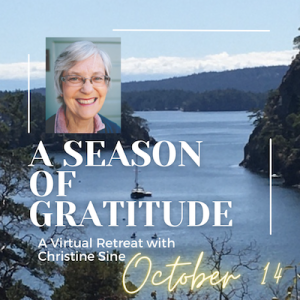by Alex Tang
This article originally appeared on Alex Tang’s substack: Tang’s Takeaways
Why are we so forgetful? Have you ever found yourself puzzled by the peculiar nature of human memory? One moment, you’re profoundly touched by a sermon or inspired by a passage of Scripture, and you think, “I’ll never forget this.” Yet, the details become hazy just a few days or even hours later, and that initial feeling of inspiration dwindles. Perhaps you’ve had those mountaintop moments where God’s love felt incredibly close, and you were sure such a powerful sensation could never be forgotten. But then life happens. The bills pile up, the kids yell, and the day’s stresses seem to wash away those moments of clarity like footprints in the sand.
In these instances, it’s helpful to reflect on Psalm 103:14, which tells us, “For he knows how we are formed, he remembers that we are dust.” Our Creator is intimately aware of our human frailties, including our tendency to forget. He understands our limitations better than we do ourselves. It’s as if God designed us with a sort of “spiritual amnesia” that makes us prone to forget even the most transformative experiences and lessons, but why?
Perhaps this “gift of forgetfulness” is a divine reminder of our utter dependence on God. It’s a humbling realisation, prompting us to lean not on our own understanding but to seek God continually. It forces us to go back to God’s grace, love, and wisdom daily. What’s even more astonishing is that, despite our forgetful natures, God’s blessings never wane. His mercies are not just for the moments we remember to ask for them or the times we feel we deserve them; they are new every morning and constant throughout our lives.
So, in the face of our forgetfulness, let’s find comfort that God remembers us always. Our memory lapses serve as invitations to return to Him, to “taste and see that the Lord is good” (Psalm 34:8) again and again. And as we do, we may discover that while our memory of God’s blessings might be limited, His love for us is limitless.
We Forget So Easily, But God Remembers Us Always
God’s Faithfulness: Think back to the Israelites in the wilderness. Each day, God sent manna from heaven, and when they were parched, He made water flow from rocks. And yet, they grumbled, complained, and doubted God’s plan for them. Doesn’t that sound familiar? I find myself doing the same thing. I pray for a job, and when I get it, I worry about job security. I pray for healing and worry about something else once I’m better. Time and time again, I forget God’s past faithfulness when new challenges appear on my horizon. It’s a shortcoming I recognise all too often in myself. This is why the words of Lamentations 3:22-23 are so vital: “The steadfast love of the Lord never ceases; his mercies never come to an end; they are new every morning; great is your faithfulness.” Those words serve as a constant reminder, a clarion call, that God’s faithfulness is not dependent on my memory of it.
God’s Grace: If I were honest, I’d have to admit that my life has been a series of missteps, wrong turns, and sins. After each mistake, I find myself kneeling, asking for forgiveness, which God graciously grants. Yet, what do I do afterwards? Far too often, I stumble into the same sins as if I’ve forgotten the cost of God’s grace. Romans 5:8 is an anchor for the soul in these moments, reminding us, “But God demonstrates his love for us in this: While we were still sinners, Christ died for us.” This extraordinary sacrifice should not be pushed to the corners of our minds. Instead, it should be the centrepiece of our thoughts, reminding us to extend the same grace to ourselves and others.
God’s Providence: Our lives are bustling with activities, responsibilities, and endless to-do lists. During this chaos, how easy it is to overlook the quieter, subtle ways God’s providence operates in our lives. Maybe it’s a WhatsApp message from a friend when we need it or an unexpected opportunity that solves a looming problem. Romans 8:28 assures us, “And we know that in all things God works for the good of those who love him, who have been called according to his purpose.” This verse nudges me to pause, to step back from the busy canvas of my life and see the broader strokes painted by the hand of God’s providence.
God’s Provision: Ah, the sweet moment when a long-standing prayer is answered! In that instant, my heart swells with joy and praise, convinced I’ll never forget this divine provision. But alas, how short-lived that memory often is. As the days roll by, that enthusiasm diminishes, and I find myself engrossed in new desires, new prayers, and new worries, forgetting the answered prayers lying in my not-so-distant past. Philippians 4:19 reminds us, “And my God will meet all your needs according to the riches of his glory in Christ Jesus.” This scripture should serve as a bookmark in the unfolding story of our lives, reminding us that God provides past, present, and future.
God’s Presence: Loneliness is a potent emotion. It can cloud judgment, sow seeds of doubt, and utterly isolate us. During such times, it’s as if a fog obscures my awareness of God’s constant presence. Yet, even in those moments, the promise in Hebrews 13:5 stands unshaken: “Never will I leave you; never will I forsake you.” When I feel abandoned, when it seems no one understands, I must recall this divine promise. No matter how strong the feelings of loneliness are, they are like passing clouds, and God’s promise is the ever-shining sun behind them.
Forgetting is a human trait, but the beauty of our relationship with God is that even when we forget, He remembers. And in His remembering, we find the grace to carry on, to rise again, and to draw nearer to the One who never forgets us.
Practical Guidance: How to Cultivate a Longer Spiritual Memory
Daily Reflection: Setting Intentional Moments of Pause
One practical step I’ve found incredibly beneficial is dedicating a few minutes every day—either first thing in the morning or right before bed—to pause and reflect on the blessings and lessons of the day. This isn’t just a fleeting thought but an intentional moment where I close my eyes and take a few deep breaths. I specifically try to recount how I’ve seen God’s hand at work that day, whether in a conversation, an unexpected blessing, or even a hurdle I overcame with His help. Doing this daily makes these instances easier to remember and shifts my mindset. The more I notice God’s work at the moment, the less likely I am to forget it long-term.
Journaling: A Tangible Record of God’s Faithfulness
I have found that writing things down makes a world of difference. Keep a notebook or digital document to jot down answered prayers, blessings you’ve received, and even your challenges. I don’t just list them; I try to write a sentence or two describing how it made me feel or why it was significant. Then, on days when God’s presence feels distant, I turn back the pages and relive those divine interactions. It’s like having a spiritual “highlight reel” I can return to, reminding me of God’s constant faithfulness over time.
Testimonies: The Power of Shared Stories
There’s something incredibly reinforcing about verbalising your experiences. I make it a point to share my small victories and big blessings with close friends or family members. When I say it out loud, it cements it in my memory. And hearing their testimonies does the same for me. Whenever I can, I also participate in group settings where testimonies are shared, whether that’s a church meeting, a small group, or an online forum. It’s one thing to remember God’s work in my life; it’s another level of reinforcement to see His work in the lives of others as well.
Communal Worship: The Collective Memory of God’s Goodness
While personal worship has its place, communal worship has incomparable power. When I join others in singing praises or partake in Communion, it isn’t just my memory that’s refreshed; it’s the collective memory of a community reminding each other of God’s grace and sacrifice. I find this especially powerful during Communion. As I hold the bread and wine, I look around and see others doing the same, and I’m reminded that this isn’t just my story but our story as the Body of Christ. If you can, engage in regular communal worship, whether Sunday services, midweek meetings, or special worship nights. The shared experience magnifies the impact and makes it harder to forget.
By integrating these practical steps into my daily and weekly routines, I find that my memory isn’t as short as it used to be—not because I’ve improved, but because I’ve built a framework that continually brings me back to God’s faithfulness, grace, providence, provision, and presence. It becomes a spiritual muscle memory, where recognising and remembering God’s work in my life starts to become second nature.
Embracing the Journey of Remembrance
In a world brimming with distractions, it’s natural for our minds to waver, our memories to falter, and our spiritual recollections to fade. But this inherent challenge isn’t a sentence to perpetual forgetfulness. Instead, it’s an invitation—a beckoning toward more profound, more intentional communion with our Creator.
God, in His infinite wisdom, understands our fallibility. He knows our tendencies better than we know them ourselves. Yet, His love, patience, and promises remain steadfast, awaiting our return to remembrance. Each time we forget, He’s ready with open arms, reminding us of His love, miracles, and promises.
As we integrate these practical steps into our lives—daily reflections, journaling, sharing testimonies, and participating in communal worship—we’re not just building a habit. We are creating a spiritual legacy. A tapestry of moments and milestones that, when looked upon, paints a vivid picture of a God who never forgets us, even when we forget Him.
So, let us move forward with hope and diligence. With each passing day, let’s strive to remember more, to see God’s hand in our lives more clearly, and to store these memories deep within our hearts. For in the act of remembering, we find the history of God’s work in our lives and the essence of His unending love for us.
May we, as the Psalmist proclaimed, “Bless the Lord, O my soul, and forget not all His benefits” (Psalm 103:2). Let this be our prayer, our mission, and our journey—a journey of ever-deepening remembrance in the vast ocean of God’s love.

Join Christine Sine on October 14 or watch the recording later. October and November, the season between Canadian Thanksgiving and American Thanksgiving, is gratitude season on Godspacelight. Christine Sine will encourage you to enter into the practice of gratitude in this interactive retreat that will help us enter this season of gratitude with joy and delight in our hearts.

